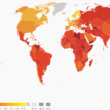DyStar, a Singapore-based specialty chemical company with over a century of innovation and product development, has published its Integrated Sustainability Report for FY2023/24. Marking 14 years of consistent sustainability reporting in line with the Global Reporting Initiative (GRI) Standards, this year’s report also incorporates the Integrated Reporting <IR> framework, showcasing the company’s environmental, social, and governance (ESG) initiatives through six key capitals.
Despite navigating a year of change, DyStar has upheld its strong commitment to sustainability. Xu Yalin, Managing Director and President of DyStar Group said, “In FY2023, DyStar capitalized on growth momentum and embraced strategic changes. We are pleased to report, DyStar is on track to meet our 2025 targets. Today, DyStar remains committed to enhancing our environmental performance and seeking innovative solutions to address future challenges, thereby creating long-term value for all our stakeholders and the global supply chain.”
The latest report highlights DyStar’s strategic approach to sustainability, showcasing significant progress in various areas. Notably, the company’s energy-efficient initiatives have resulted in substantial reductions in emissions. DyStar’s Scope 1 and Scope 2 emissions totaled 42,084 tCO2e, reflecting a 67% decrease from the 2011 baseline and a 26% reduction compared to FY2022. Scope 3 emissions, largely from the transportation of goods and services, accounted for 8.2% of the total emissions profile.
In energy management, DyStar increased its use of renewable energy by 20%, alongside implementing multiple energy conservation initiatives aimed at reducing global energy consumption. Operationally, the company made significant improvements in water efficiency, reducing wastewater discharge by 37% and improving the intensity level to 8.04 m³ per ton of production from 8.71 m³ per ton the previous year. This success is partly attributed to several sites operating under a “Zero Liquid Discharge Scheme” mandated by local authorities.
Key highlights from FY2023 include DyStar’s participation in ITMA Milan, where they introduced a new range of bio-based products, including dyes and auxiliaries containing renewable feedstock, and the Eco-Advanced Indigo Dyeing process. The company was also recognized by the Institute of Public & Environmental Affairs (IPE), securing second place on IPE’s Green Supply Chain Corporate Information Transparency Index (CITI). Additionally, DyStar celebrated diversity and inclusivity through global campaigns.















